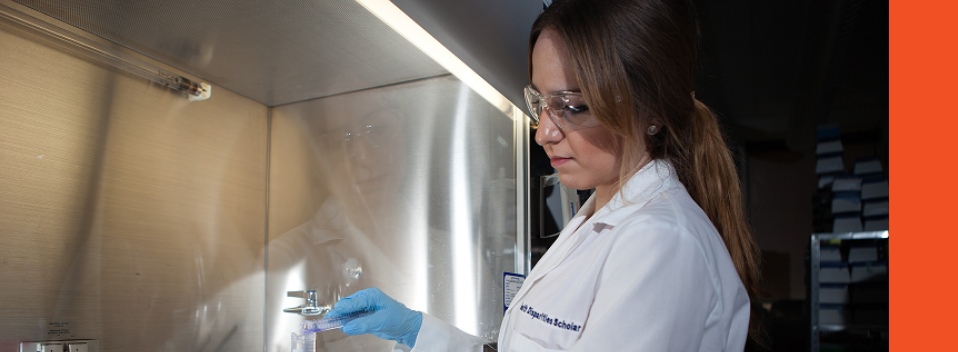
Health & Biomedical Sciences Faculty Publications
Document Type
Article
Publication Date
8-2021
Abstract
Inflammatory breast cancer (IBC) is an aggressive form of primary breast cancer characterized by rapid onset and high risk of metastasis and poor clinical outcomes. The biological basis for the aggressiveness of IBC is still not well understood and no IBC-specific targeted therapies exist. In this study, we report that lipocalin 2 (LCN2), a small secreted glycoprotein belonging to the lipocalin superfamily, is expressed at significantly higher levels in IBC vs non-IBC tumors, independently of molecular subtype. LCN2 levels were also significantly higher in IBC cell lines and in their culture media than in non-IBC cell lines. High expression was associated with poor-prognosis features and shorter overall survival in IBC patients. Depletion of LCN2 in IBC cell lines reduced colony formation, migration, and cancer stem cell populations in vitro and inhibited tumor growth, skin invasion, and brain metastasis in mouse models of IBC. Analysis of our proteomics data showed reduced expression of proteins involved in cell cycle and DNA repair in LCN2-silenced IBC cells. Our findings support that LCN2 promotes IBC tumor aggressiveness and offer a new potential therapeutic target for IBC.
Recommended Citation
Villodre, E. S., Hu, X., Larson, R., Finetti, P., Gomez, K., Balema, W., ... & Debeb, B. G. (2021). Lipocalin 2 promotes inflammatory breast cancer tumorigenesis and skin invasion. Molecular oncology, 15(10), 2752-2765. https://doi.org/10.1002/1878-0261.13074
Creative Commons License

This work is licensed under a Creative Commons Attribution 4.0 International License.
Publication Title
Molecular oncology
DOI
10.1002/1878-0261.13074


Comments
© 2021 The Authors. Molecular Oncology published by John Wiley & Sons Ltd on behalf of Federation of European Biochemical Societies